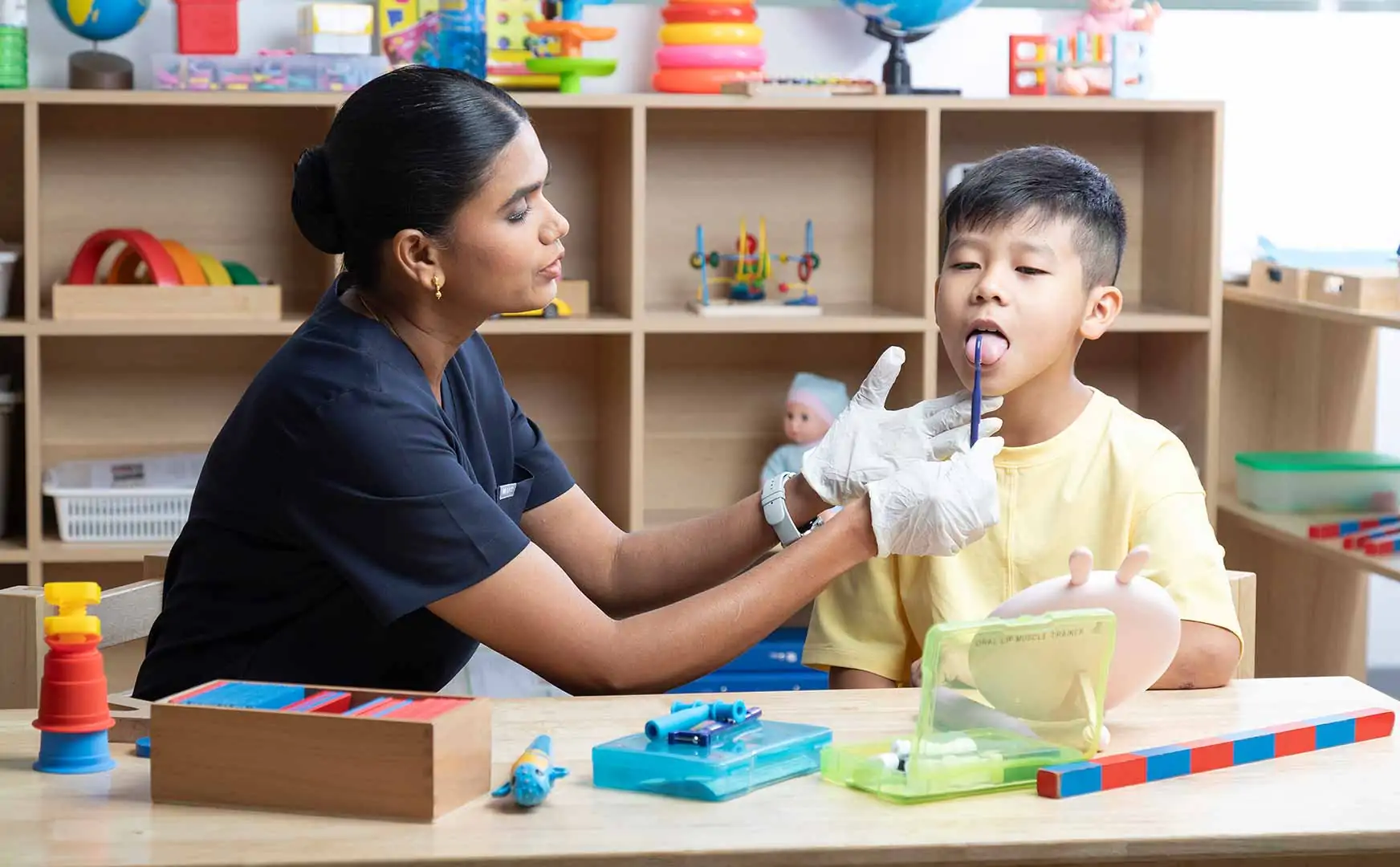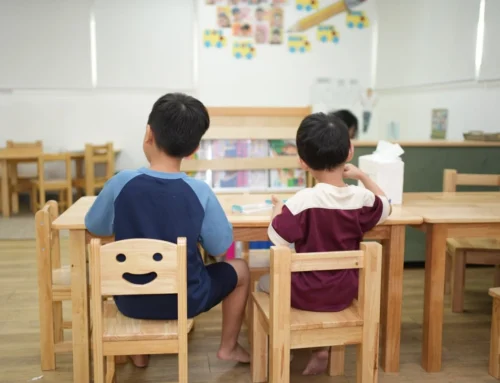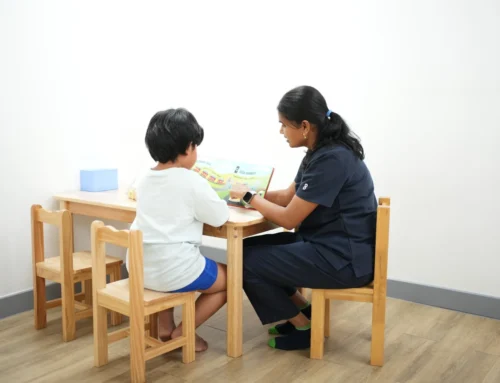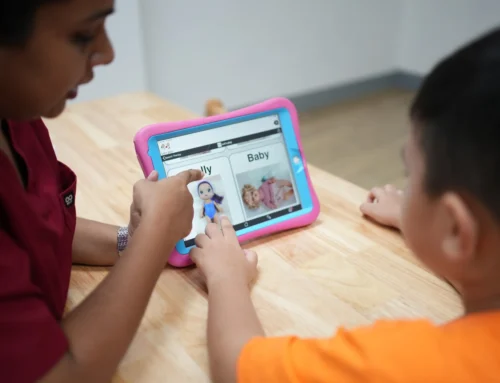In Cambodia’s growing special education and therapy sector, continuous training for therapists is no longer optional—it’s essential. As new research, tools, and intervention strategies emerge, ongoing professional development ensures that speech-language pathologists, occupational therapists, and special educators stay up-to-date and deliver the highest quality care. At OrbRom Center in Phnom Penh, we believe that investing in continuous learning directly translates to better outcomes for children and families.
Why Continuous Training Matters
Therapists play a crucial role in helping children with communication, sensory, and developmental challenges thrive. Yet, the needs of each child are unique and constantly evolving. Continuous training allows therapists to refine their skills, learn innovative strategies, and stay aligned with global standards in speech and occupational therapy.
For example, new approaches such as PROMPT therapy and Augmentative and Alternative Communication (AAC) tools are reshaping how therapists support children who are nonverbal or have speech delays. Without proper training, many professionals might miss opportunities to use these evidence-based techniques effectively.
At OrbRom Center, our team of therapists regularly participates in workshops, online certifications, and mentorship programs. This commitment ensures that every session—whether in speech therapy, occupational therapy, or special needs intervention—meets the highest international standards.
Keeping Therapy Practices Aligned with Global Standards
The world of therapy is constantly changing. International research continues to provide deeper insights into child development, communication, and sensory integration. For instance, the integration of sensory-based learning techniques with language therapy has proven highly effective for children on the autism spectrum.
Continuous training allows Cambodian therapists to adapt these best practices to the local context. By doing so, they bridge the gap between international knowledge and the cultural realities of children and families in Phnom Penh.
Moreover, therapists who engage in ongoing professional development demonstrate ethical responsibility. They commit to lifelong learning—a principle central to all helping professions. At OrbRom Center, our therapists collaborate, reflect, and refine their techniques regularly to ensure each child receives individualized, evidence-based care.
Enhancing Collaboration Between Disciplines
Continuous training also strengthens teamwork among professionals. When speech therapists, occupational therapists, and special educators share updated knowledge, they can coordinate interventions more effectively.
For example, a child attending speech therapy may also need occupational therapy for sensory regulation or fine motor support. Through shared training and regular interdisciplinary meetings, OrbRom’s therapists can create cohesive plans that address communication, movement, and behavior together.
This collaborative model benefits both the child and the family—reducing confusion, saving time, and ensuring consistent progress across all settings, including the home and preschool program environments.
Building Confidence and Motivation for Therapists
For many professionals, continuous learning reignites passion and purpose. Therapists who invest in new knowledge gain confidence in their practice, communicate more effectively with parents, and feel empowered to solve complex challenges.
In Cambodia, where access to specialized training has historically been limited, opportunities for professional growth are transforming the sector. By providing structured training and mentoring, OrbRom Center helps therapists build meaningful careers while improving the quality of care available to Cambodian families.
Continuous training also fosters innovation. Therapists learn to create engaging sessions using tools like everyday household objects or play-based activities, blending creativity with evidence-based methods—an approach we often highlight in our speech therapy techniques and exercises blogs.
The Cambodian Context: Raising the Bar in Therapy Services
As awareness about autism, ADHD, and developmental delays grows in Cambodia, families are seeking higher-quality, professional support. However, the number of well-trained therapists remains limited. Continuous training helps close this gap, ensuring children receive consistent, effective, and culturally sensitive interventions.
At OrbRom Center, we’re proud to be part of this change. Our multidisciplinary team continues to learn from international experts, local educators, and one another. By staying informed and motivated, we can empower every child to reach their full potential—whether through assessments, therapy sessions, or early intervention programs.
Conclusion: Learning Never Stops at OrbRom Center
The importance of continuous training for therapists cannot be overstated. It is the foundation of quality care, innovation, and ethical practice. In Cambodia, as the demand for speech and occupational therapy continues to grow, ongoing education ensures therapists remain capable, confident, and compassionate.
At OrbRom Center, we are deeply committed to professional growth—because when therapists keep learning, children keep progressing.
We are the only Preschool specialized on children with special needs in PhnomPenh.
- Internationally qualified teachers
- Cambodia’s largest sensory room
- Outdoor swimming pool
- Covered outdoor playground
📞 Phone: 077.455.993
Telegram Link: https://t.me/OrbRom





